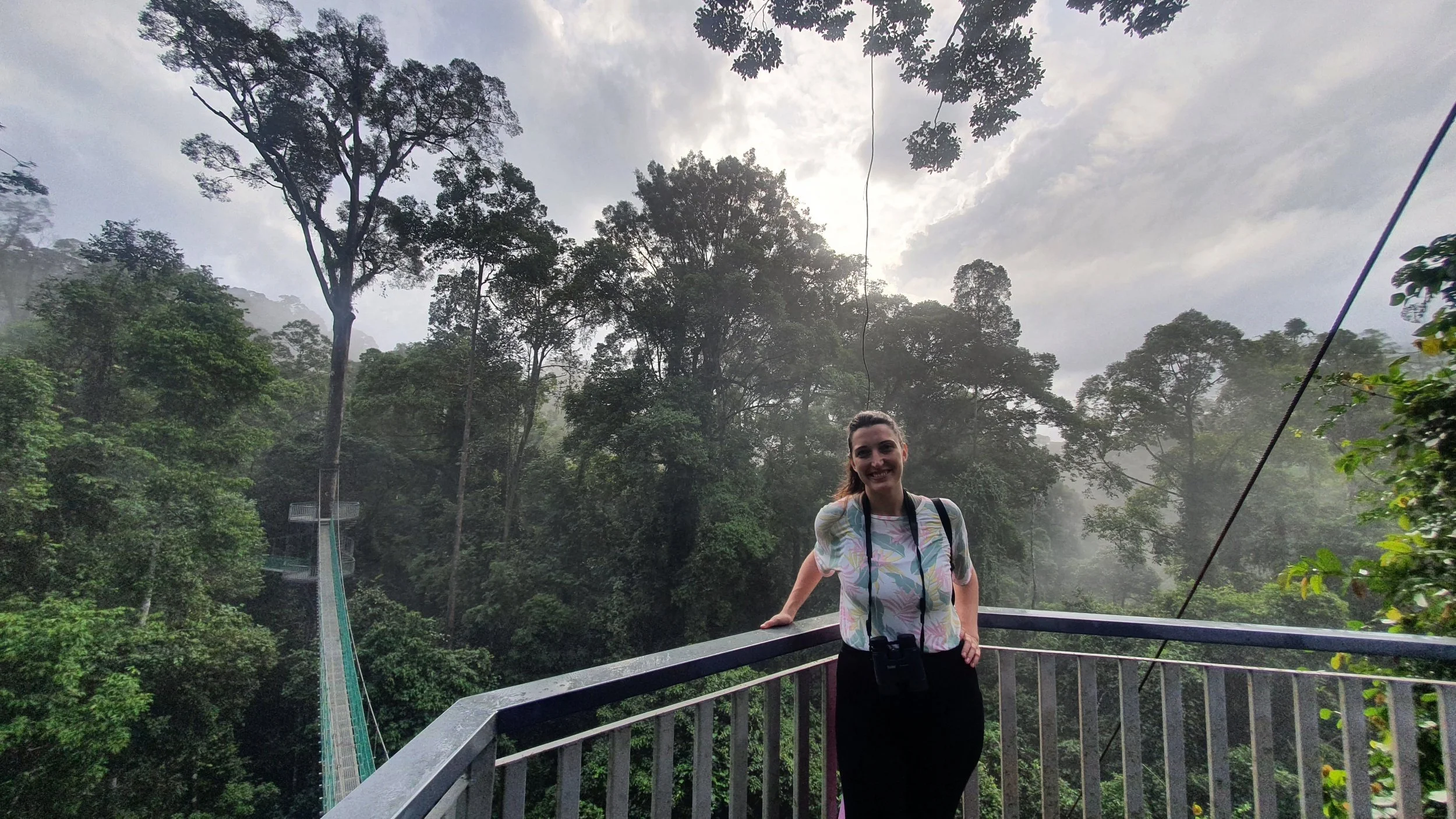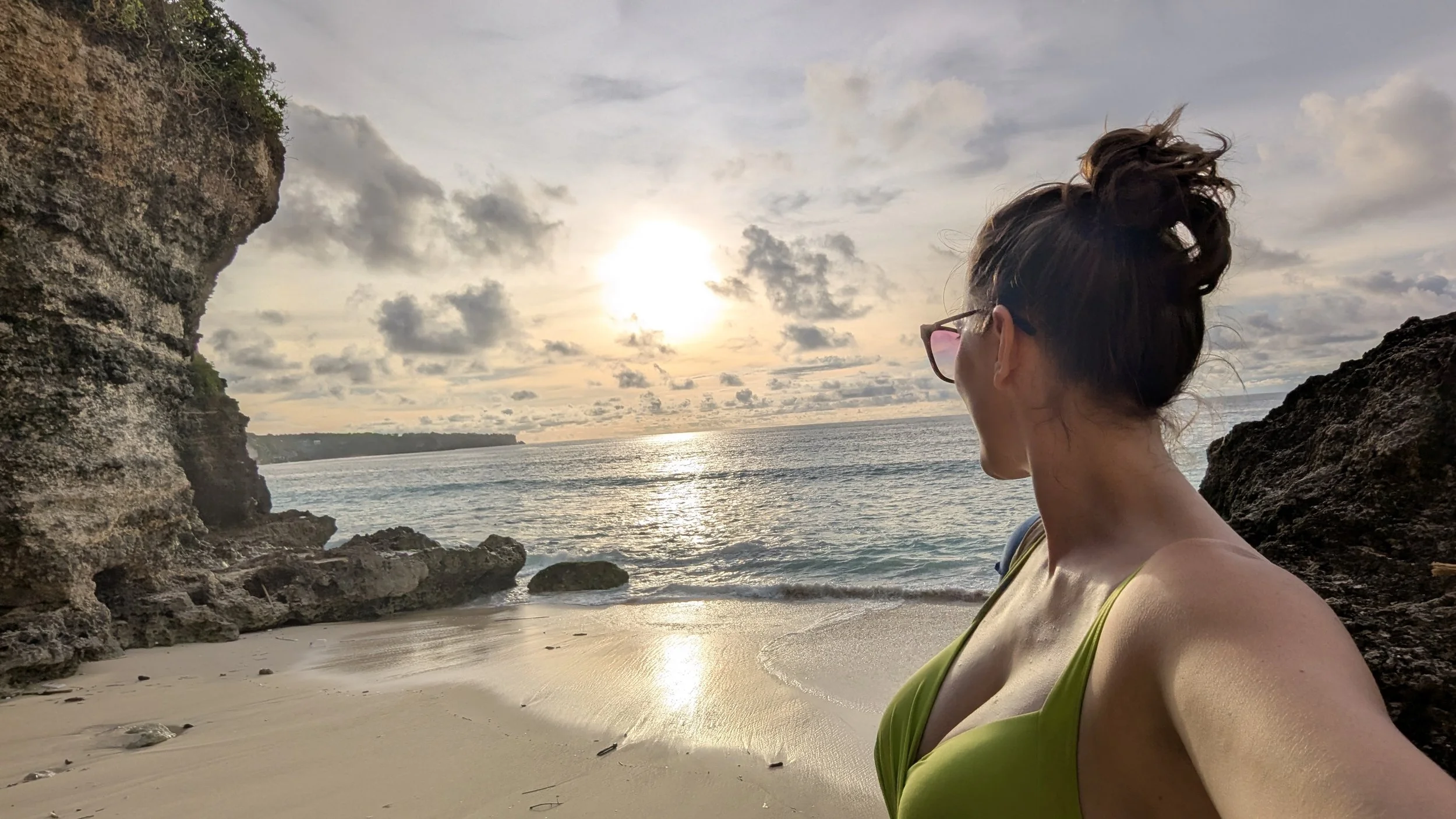Travel Better: Your Guide to More Responsible Travel (Without Stress!)
Do you have more ideas? Leave them in the comments or contact me to share!
Travel is one of the most beautiful ways we connect with the world, and with each other. As we become more aware of the environmental, cultural, and economic impacts of tourism, many of us are asking: how can we be better travelers?
And I have good news: It is possible to be a more responsible or ethical traveler, and it can lead to a more meaningful, life-changing trip for travelers, too. I’d argue that the best memories come from getting to know local communities, supporting arts and locally-owned businesses, and enjoying nature and culture.
In this guide, I’ll introduce the concepts of responsible travel: why it matters, what it is, and key practices anyone can implement to travel more ethically.
IN THIS GUIDE:
Why Does 'Responsible Travel' Matter?
Despite best efforts, every traveler leaves a footprint, and understanding the ripple effects of tourism is key to being a better traveler. Tourism can bring real economic benefits to local communities, creating jobs and supporting small businesses. However, excessive tourism can lead to negative impacts, such as environmental degradation, loss of cultural heritage, displacement of local people, and increased cost of living.
“If we want to enjoy visiting other parts of the world, we must also do our part to ensure we aren’t causing harm to these communities.”
As responsible travelers, we can actively help maintain the beautiful ecological and cultural beauty our world offers by practicing openness and thinking critically about where we spend our money.
Ethical travel matters to those who want to ensure that the benefits of the tourism economy are shared fairly, that the nature we go to enjoy is protected, and that cultural heritage is respected and preserved.
What is Responsible Travel?
This guide shares simple, flexible ways to travel more ethically, based on values like mutual respect, sustainability, and supporting local. This is what responsible travel really means, after all.
“It’s about mindset: how we try to show up in the world as travelers who care about the people we meet, the places we visit, and the planet we all share”
Being mindful of your impact also means recognizing when tourism might be doing more harm than good. I’ll share different ways you can make travel more sustainable, avoid activities that exploit people or the environment, and support more ethical tourism to help create a positive ripple effect. When you support local and make more thoughtful choices, you help ensure that tourism remains a force for good in the world, for travelers and hosts alike.
🩹 Quick note: Your health and safety always come first. These ideas are here to guide you where possible—not override common sense or your personal needs.
✨ Key Practices for Responsible Travel
1. Stay Curious
Traveling responsibly (aka ethical travel) is about being more aware, open, and intentional. The world is complex, and travel will always have an impact, but small, thoughtful choices add up, especially when grounded in humility and curiosity. Engaging with other cultures deepens our understanding, fosters respect, and enriches our travel experiences.
Awareness is the foundation of sustainable travel. By staying curious, asking questions, and learning about the places we visit, we can minimize negative impacts and maximize the positive.
Try this:
Travel with the goal of learning, not preaching.
Avoid profiting from poverty, suffering, or children’s images. Always consider the dignity of others.
Listen to locals’ stories and perspectives before offering your own, and only offer yours if the situation is appropriate.
Ask questions with curiosity and without judgment.
Learn about the systems, barriers, and lived realities that shape daily life where you’re visiting.
“When I lived in Tunisia, I learned more by listening than speaking. Locals generously shared their daily realities with me, from rising extremism to struggles with the cost of living. Those conversations shaped how I saw the world, taught me better media literacy, and reminded me that I’m always a guest, never an expert.”
2. Support the Local Economy
As tourism grows, especially in developing countries, big international players often swoop in. Hotel chains, all-inclusives, and luxurious resorts have become prevalent, often leading to economic leakage, environmental and cultural degradation, and fewer benefits for the local community. Variety can be great and healthy, but too much foreign ownership is problematic for local communities who deserve the primary benefits of tourism.
By supporting local small businesses, you know your money is directly helping a local family. Plus, these experiences usually offer a deeper appreciation of local traditions, daily life, and the values that shape a place, giving you a more authentic and memorable trip.
Try this:
Choose locally-owned accommodations like guesthouses, homestays, or small boutique hotels.
Eat at local restaurants and food stalls (e.g. warungs in Indonesia) and try traditional dishes, supporting the local community.
Shop from artisans and markets instead of big-box souvenir shops.
Negotiate fairly when it’s part of the local culture—but never undervalue craftsmanship or deny a decent wage.
Include visits to NGOs and social enterprises (businesses that operate for social causes) when you can. See examples here from Siem Reap, Cambodia!
“In Bali and Phuket, I saw firsthand how foreign ownership can dominate and change the character and culture of a place. There are parts of these islands where you can’t really tell you’re in Indonesia or Thailand. That’s why I make a point to stay in family-run guesthouses, book local guides, and include local eateries in my daily itinerary.”
3. Engage with the Culture
Travel offers us the incredible privilege of stepping into someone else’s world—tasting new foods, witnessing traditions, and experiencing different ways of life. But with that privilege comes responsibility.
Being a respectful guest means learning and honouring the customs of the places we visit, rather than expecting them to adapt to us. Approaching differences with curiosity and humility goes a long way toward building trust and connection.
Try this:
Learn a few key phrases in the local language–at least hello, please, and thanks.
Research local customs before you go, and ask questions while you’re there.
Dress appropriately, especially when visiting holy or sacred places.
Always follow local guidance, especially from elders, guides, or community leaders.
Be mindful of photo taking, especially of people and children. Always photograph respectfully by asking for permission, particularly for photos of minors, to ensure you are considerate of local residents and their privacy.
“When I was invited to a Balinese wedding, my landlord lent me traditional attire. In Canada, I might’ve worried about ‘cultural appropriation’. But in Bali—and in much of the world—wearing traditional clothing is seen as a gesture of respect and admiration. The warm response I received still makes me smile. Cultural appreciation is a powerful way to connect.”
4. Tread Lightly on the Environment
Caring for the planet while traveling isn’t always straightforward, especially when you’re navigating unfamiliar systems and infrastructure. In developing countries, travelers may encounter unique environmental challenges such as inadequate waste management, limited resources, and modest living standards, making it especially important to be considerate of fragile local ecosystems.
Still, there are ways to reduce harm and deepen our respect for nature. Seek the most feasible practices based on the place you’re visiting, and try to prepare ahead to plan for less waste by packing reusables.
Try this:
Avoid taking large cruises, which are known to be among the most environmentally destructive forms of tourism.
Visit conservation projects and parks, which make for fantastic outings and discoveries while supporting nature.
Avoid activities that exploit wild animals or disrupt natural environments. Only participate in activities with animals when the animals are free/wild, not in cages.
Never litter, and more importantly, reduce waste and skip single-use plastics whenever possible. Bring your own hygiene products, utensils, water bottle, tote bag, etc.
Share transport or take public transit when viable—especially if you can take a train instead of flying somewhere.
“The trick is to balance expectations with reality, and reality with cultural norms. I used to feel guilty anytime I couldn’t avoid plastic while traveling—but then I realized it’s not always possible, and it’s also not black and white. In people’s homes, I always accept water bottles with thanks, knowing it’s the safest drinking option and a generous gesture. Now, I just try to reduce waste as much as I possibly can, while staying grateful and flexible.”
5. Give Back Where You Can
Tourism should benefit the people who make our trips possible. Being generous—with tips, patience, and where we spend our money—can make a real difference. Giving back ensures tourism benefits the local community in a positive way. Let’s make sure that local people are able to make a decent living from tourism.
Try this:
Book accommodations and experiences run by locals or organizations with clear community benefits.
Tip your guides and drivers generously. They often receive only a small fragment of what you paid, but they will be your #1 support system during your trip.
Avoid giving money to children or beggars, as it can unintentionally support cycles of poverty and keep kids out of school.
Consider contributing to non-profit organizations you resonate with (environmental, educational or social).
Don’t “haggle” your way to an inhumane price when negotiating in markets. You can haggle where it’s culturally relevant, but be fair.
“I visited a conservation project in West Bali where I met a man, carefully nesting turtle eggs in the sand, whose father and grandfather were turtle hunters. From that lineage, and with great respect for harmony of nature, human and spirituality, he decided to dedicate his life to turtle conservation. I loved his passion and made a donation to help sustain their work—one of the ways I try to make a positive impact in my travels."
6. Own Your Mistakes
We’re all learning. You won’t always get it right, but what matters is how you respond when you mess up. Owning your mistakes with humility can turn an awkward moment into a meaningful one.
It’s a constant practice of being gracious with others, more aware of yourself and your biases, and more open-minded. Above all, having the humility to be honest and apologize when you make mistakes, and the courage to have discussions on how to rectify them, can be powerful.
Try this:
Be patient with yourself and others—nobody gets it right 100% of the time.
Apologize if you believe you made a mistake.
If you aren’t sure about somthing culturally, just ask, people usualy appreciate the consideration and curiosity and will happily explain.
Reflect on moments you may have misunderstood or mishandled, and consider how you’d respond differently next time.
Use mistakes as opportunities to grow, not reasons to feel shame.
“Years ago, I rode an elephant in Nepal—something I wouldn’t do now. At the time, I didn’t know the harm that the required training caused to elephants. Looking back, I try not to judge my past self too harshly. Growth means having empathy (for yourself and others) as we all keep learning and doing better. Now, I only visit or recommend a small handful of elephant activities, since I now know that many of them are quite harmful and unethical.”
7. Bring the Lessons Home
Ethical travel doesn’t end when the trip does. Some of the richest takeaways show up weeks or years later, changing how we live and connect with others. Bringing those lessons home is a huge part of ethical travel, as it helps integrate positive changes into your daily life and community.
Try this:
Let your experiences shape how you move through the world, at home and abroad.
Leave Google or TripAdvisor reviews for nature and culture-protecting activities you enjoyed, and recommend them to friends and family.
Share what you’ve learned with people you know and/or on social media.
If you learned about a cultural practice you appreciated, consider implementing it at home (ex., more community-style childcare, cooking pasta in wine, more frequent breaks throughout the work day, etc.)
Support a more just and peaceful world when you’re not traveling—by signing petitions, donating, and advocating for causes you care about.
“One of my favorite memories from my work trip in Kenya wasn’t a tourist site—it was the office tea breaks. That ritual of slowing down every afternoon at 3PM, checking in, and sharing space for non-work connection stayed with me. These days, I try to create space for that kind of pause in daily life, too.”
Final Word: Travel with Care & Curiosity
You never know how a trip might change you until it does. The people you meet, the values you test, the ways you grow—they can shape your worldview long after the plane lands.
As tourists, we collectively have the power to shape the impact of travel, supporting local communities and making choices that benefit both our destinations and their residents. The more effort we make to reduce harm when traveling, the more we’ll benefit from meaningful perspective-altering life experiences.
Beyond what individual travelers can do, governments need to take responsibility for infrastructure and implement regulations on tourism and development, and businesses need to take accountability for the waste and pollution they produce. In the meantime, we can vote with our choices and our money, supporting the businesses and regenerative tourism experiences that are trying to do better.
We won’t get it perfect every time. But we can travel with greater care, curiosity, and compassion. And that’s a pretty great place to start.
Want to Travel Better (Without Stress)?
I’m Lynne, the founder of Travelynne. I curate personalized travel plans that reflect the values of responsible travel—so you can travel better without the overwhelm. Each itinerary supports local people, protects the environment as much as possible, and celebrates culture in an enriching way.
Whether you’re a solo traveler or planning your family’s next adventure, you don’t have to do it all. I’ve got you.
KEEP EXPLORING:
HEADS UP: Some links on Travelynne are affiliate links, which means I may earn a small commission—at no extra cost to you—if you book something through them. These earnings help me keep creating free, thoughtful travel guides like this one.
✨ Support Travelynne and plan smarter: Visit the DIY Booking page to book tours, operators, transport, and stays.
🧭 Need a personal touch? Schedule a free 15-minute consult for custom travel planning and soulful trip advice.













